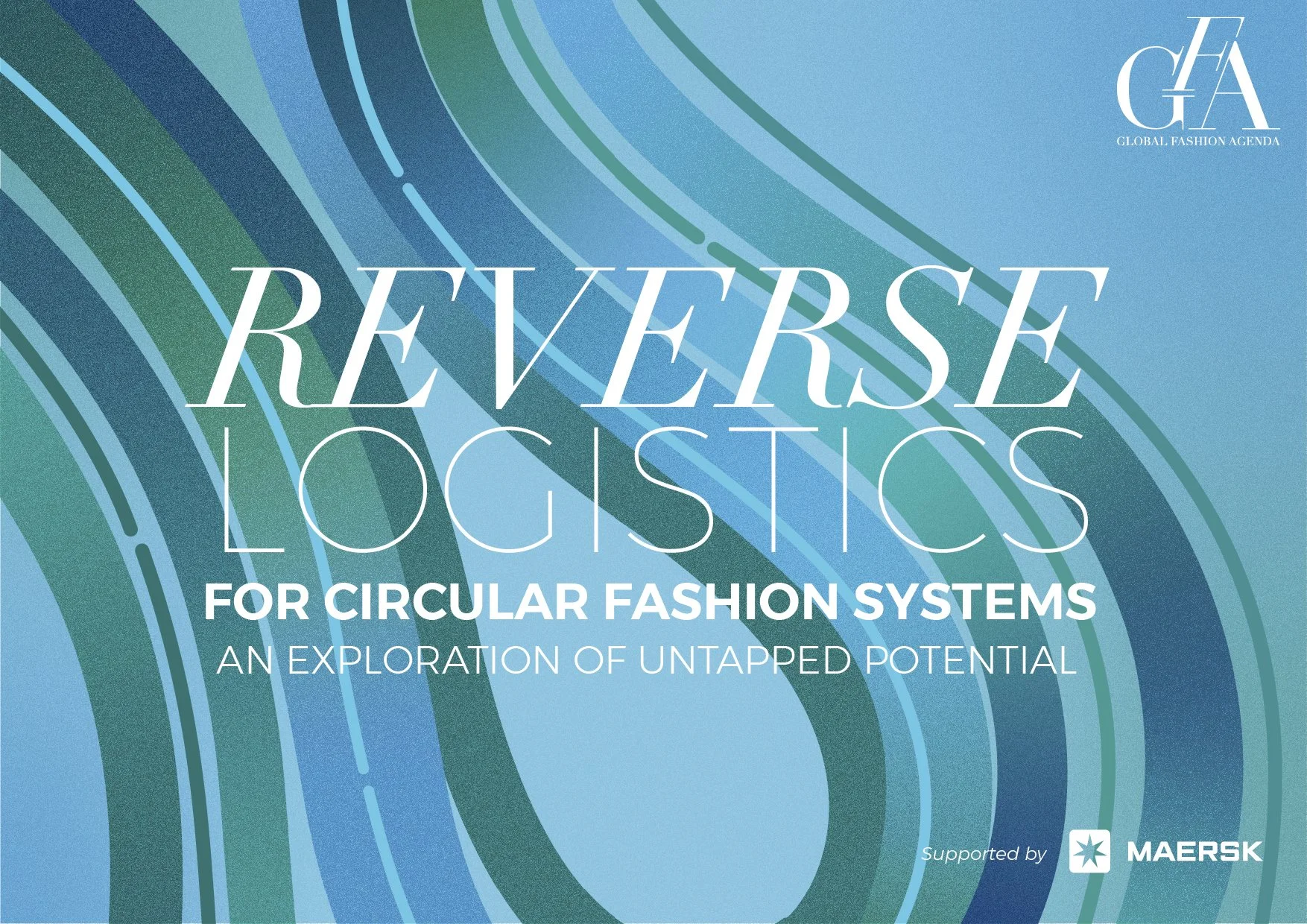Global Fashion Agenda launches reverse logistics roadmap for circular fashion
Global Fashion Agenda (GFA), supported by its Insight Partner, Maersk, has released a new report, Reverse Logistics for Circular Fashion Systems. The report expands on how fashion brands, retailers, value chain partners, and logistics providers can leverage reverse logistics to cultivate an effective and holistic circular fashion system.
The publication is the culmination of extensive research, including consultations with and input from eight renowned experts from eight brands and organisations - Maersk, Nike, H&M Group, Target, PUMA Group, Ellen MacArthur Foundation, VF Corporation, and Circle Economy Foundation. It highlights the critical role of logistics in supporting fashion companies to adopt more circular systems by managing the reverse flow of materials and products from end-users, and returning them back into the system for resale, remaking or recycling, extending their lifecycle, maximising value, and minimising waste.
Over 520 global regulations are currently in place, urging companies to rethink their sourcing and design strategies, emphasising regionalisation and circularity. Moreover 45% of brands surveyed by Global Fashion Agenda and the United Nations Environment Programme earlier this year reported that they have set targets to derive at least 10% of their revenue from circular business models by 2040. However, despite the potential, the fashion industry lacks a comprehensive system for circularity, with current fragmented approaches failing to achieve commercial viability. Deeper collaboration with logistics partners can support more streamlined operations, while aiding compliance with tightening regulatory requirements and in demonstrating positive environmental impacts.
To guide stakeholders, the publication outlines essential elements for implementing effective reverse logistics, including:
Network design: Expanding reverse logistics beyond consumer returns to capture and valorise post-industrial textile waste flows and unsold goods.
Financial ownership: Establishing clear financial models to define roles, responsibilities, and profit-sharing, enhancing collaboration and investment.
Boosting collection volumes: Developing infrastructure for efficient collection and processing of textile waste, essential for scaling solutions and reducing recycled fibre costs.
This landmark report is a call to action for the entire fashion industry to embrace reverse logistics to establish a truly holistic and highly effective circular fashion system. Fashion brands, retailers, manufacturers, logistics providers, and textile recyclers are invited to join Global Fashion Agenda and Maersk in advancing this collectively.
Reverse Logistics for Circular Fashion Systems is an openly accessible resource and available to download here.
